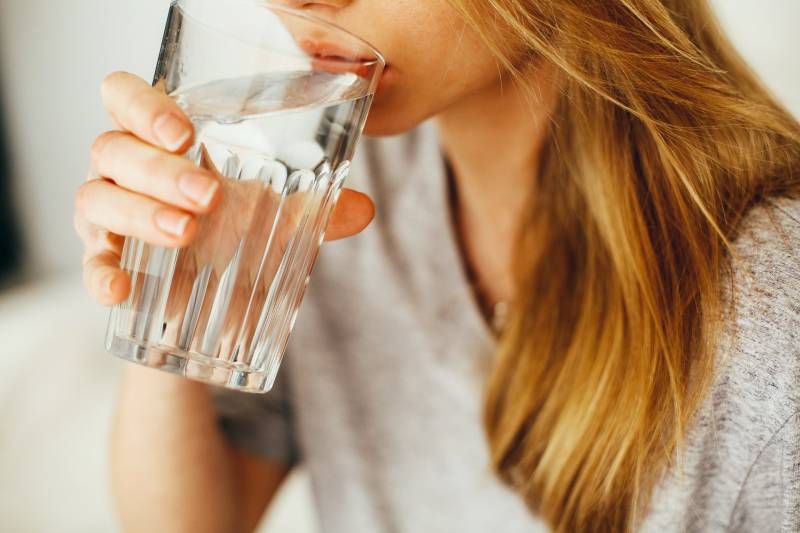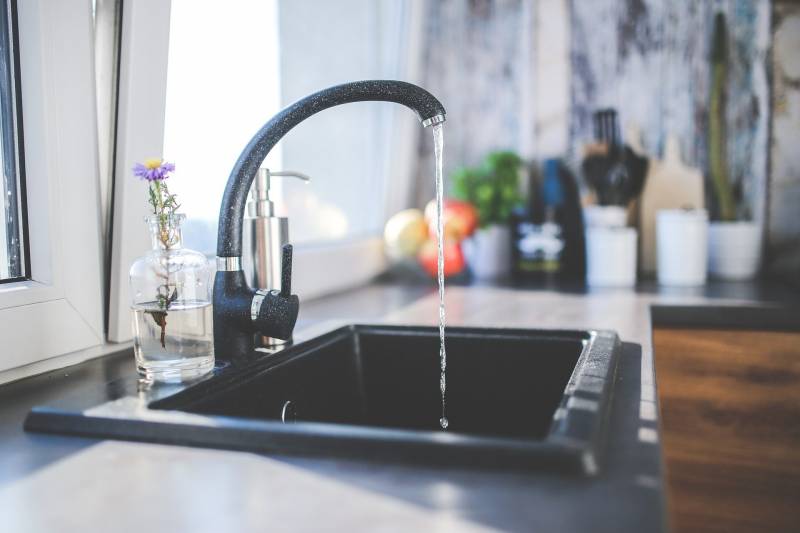Table of Contents
Water, being naturally plain, can adopt many tastes, some sweet, fizzy, or foul. The taste generally depends on the conditions it is exposed to. Water should be plain, sediment-free, and refreshing.
If the water doesn’t fulfill these conditions, it has either been modified to taste sweet or been contaminated by a pollutant.

Therefore, an irregularity has occurred if your water tastes bad. The possible reasons for the bad taste will be explored in this article. You can also expect to find a detailed explanation of the different foul tastes adopted by water and their causes.
Reasons Why Water Tastes Bad All Of A Sudden
Trust your senses to notify you when water begins to taste bad as your taste receptors are trained to notice any change in the taste of water. This is because you consume water daily and have subconscious expectations for its taste.
There are two major reasons why your previously refreshing water may start to taste bad. They are;
- Contamination
- Sickness
Contamination
Contrary to popular belief, most of the available potable water isn’t 100% pure. In fact, it not advisable to drink 100% ultrapure water. It should contain elements and compounds that provide benefits to the body.
These elements are usually tasteless, and if present in the correct quantity, do not affect the taste of water. However, if a foreign object or an unusual element/metal is introduced to water, it becomes an impurity that can change the taste of water for bad. Here are examples of common foreign components in water and the different types of taste they cause:
1. Chlorine (Bleach Taste)
Chlorine is a popular disinfectant used for killing bacteria, viruses, and other microorganisms present in water. Its compounds are obtained from seawater, but since chlorine is not a natural drinking water component, it is regarded as foreign – a beneficial foreign additive. It helps to sterilize water and prevent the transmission of water-borne diseases such as cholera and dysentery.
Chlorination is done by adding a specific amount of chlorine to the water. The quantity of chlorine added to water determines its effectiveness, and it is recommended that 4g of chlorine is enough to sterilize 1000 liters of water. At that concentration, the water adopts a slight chlorine taste, which is usually minimal. This may be the reason why your water started tasting bad all of a sudden.
Suppose the taste completely overpowers your taste buds. In that case, it could mean that your water provider added more chlorine than necessary, and this should be communicated to them so they can make the right changes. Another possible reason could be that the chlorine in your water reacts with the plastic or metal parts of your plumbing or kitchen appliances.
2. Sulfur (Rotten Egg)
This sudden change in water taste is particularly common to water sourced from the ground. Sulfate compounds and sulfate-reducing bacteria are naturally present in groundwater, and tasting them in your drinking water signifies a high level of pollution. If the water was adequately purified, the bacteria and compound should have been filtered out.
In the scenario that the water was purified correctly, and your water still has a rotten egg/sulfur taste, it signifies the presence of sulfate-reducing bacteria in your plumbing. The bacteria dwell in oxygen-deficient environments and produce hydrogen sulfide gas during metabolism.
Hydrogen sulfide gas has a rotten egg smell that would corrupt the plain taste of water. Figure out the source of the smell and solve the problem by aerating the drains to release the gas.
3. Foreign Metals (Metallic Taste)
Some elements such as sodium, iron, and magnesium are part of the chemical components of drinking water. They exist in minute quantities and do not make water taste bad.
However, if your water contains high lead levels, mercury, arsenic, and copper, it will develop a metallic taste. Manganese and zinc can also produce a metallic taste. Temporary change in its structure may lead to water tasting bad all of a sudden.
Alternatively, the pipes employed for your plumbing could be responsible for the bad metallic taste of your water. Your pipe may react with the components of your drinking water and produce chemicals that would contaminate the water and produce a bad taste.

Another possible reason could be the state of your gums. Blood has a metallic taste, and if your gums bleed frequently, it will affect your water and food taste.
4. Waste (Sewage Or Fish Tank Taste)
When water is exposed to decayed organic matter or algae, it adopts a highly unpleasant taste. Algae is a popular term that refers to a group of photosynthetic bacteria that grow on water. Algae produce blooms (called algal blooms) that linger in the taste of water even after treatment.
Algal blooms have a light earthy, moldy, dirty taste. However, if the flavor is more concentrated and has an overwhelming fish tank taste, your drinking water may be contaminated with algae. This could be from their growth in your water system or sink.
The possibility of this happening is low, but if it does happen, it will lead to skin irritation, diarrhea, vomiting, fever, and many other gastroenteritis symptoms.
When bacteria colonize a drain, they produce organic matter, which decays and releases heavy gas. This gas affects the smell and taste of water and results in a sewage-like, decayed taste.
The water is usually harmless if it was only exposed to the gas; however, it could be harmful if it comes into direct contact with the bacteria. Generally, if your water starts to taste or smell like waste disposal, you should stop consuming it immediately. Figure out the source of the problem, correct it, then resume drinking water from the source.
Sickness
The state of our taste buds determines the taste produced for water or food. If they are faulty or affected by a disorder in our body, the water may appear to taste bad when it is normal. Examples of illnesses that affect taste buds include cancer, bacterial infection, malaria, and cold.
In this scenario, the patient is the only one that would experience the bad taste. Once the person is treated and normalcy is restored, water would begin to taste like it previously did. If your water starts to taste bad and you’re noticing signs and symptoms of a disorder in your body, then the sudden bad taste of your water is probably due to sickness.
Stress can also alter a person’s sense of taste. High levels of stress and anxiety cause the mouth to dry up. If the person drinks water, it would have a bitter taste that has nothing to do with the water.
If your water suddenly starts to taste bad and you are going through a highly stressful period, you should have someone else taste your water. This is to confirm if the taste is from you or the water itself tastes bad.
Water Tastes Bad All Of A Sudden – Conclusion
There really is no substitute for the pleasure that comes from drinking a cold glass of water on a stressful, sunny day. It is one of life’s most underrated pleasures, and it can’t happen if the water tastes foul. To truly enjoy your drink, the water must taste good and smell good.
If you detect a slight unfavorable change in the taste of your water, stop drinking the water until you locate the source of the problem.
If the problem doesn’t result in harmful diseases, such as heavily chlorinated water, you may continue to drink the water until you come up with a permanent solution.



![Why Does My Bathroom Smell? [All Causes] Why Does My Bathroom Smell? [All Causes]](https://homesteadandprepper.com/wp-content/uploads/2021/05/Why-Does-My-Bathroom-Smell-150x150.jpg)




